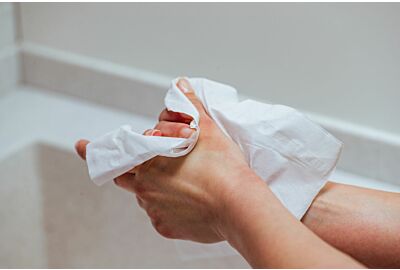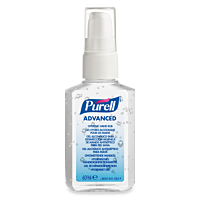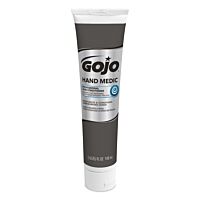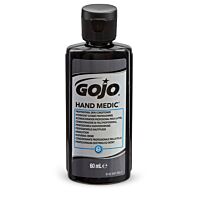Author: Romina Peralta
Maintaining effective hand hygiene is an essential step in preventing the spread of illnesses, and it is a practice that has become more critical in recent times. However, many people may not realise that a proper handwashing routine is incomplete until hands have been thoroughly dried. This is because bacteria are more likely to spread from wet skin than from dry skin, making it crucial to include proper hand drying in hand hygiene procedures.¹ So, to keep your skin clean and healthy, it's important to follow a three-step routine: wash, dry, and moisturise.
Be gentle when washing your hands
More than 94 million Europeans complain of uncomfortable skin sensations like itch, burning, or dryness, with eczema affecting 5.5% of the population².
Opting for a gentle cleanser in bar or liquid form, like GOJO Mild Foam Hand Soap, avoiding ingredients such as harsh detergents or fragrances are the first steps in maintaining a healthy skin barrier. Additionally, washing your hands with lukewarm water, rather than hot or cold, can help minimise skin irritation.³
Dry hands thoroughly
Though you may not know it, water is one of the most common skin irritants. Properly drying hands helps reduce this, and prevent germs being spread.
Several research studies have been conducted to evaluate the hygienic effectiveness of different hand-drying methods. While there have been concerns about the hygienic efficacy of electric air dryers, paper towels have consistently been found to be a superior option. They dry hands efficiently, remove bacteria effectively, and minimise contamination of the environment. ¹
These findings become particularly important in healthcare settings. The provision of single-use, disposable paper towels has been strongly recommended in hospitals and clinics, emphasising the essential role they play in promoting good hand hygiene practices among healthcare workers and patients alike.
When it comes to drying your hands, remember that how you do it matters. It’s crucial to avoid over-drying, as overly dry hands can become more susceptible to irritation. Experts recommend gently patting your hands dry using a clean towel, disposable paper towel, or air drying if available. The key here is to avoid rubbing your hands vigorously, as this can traumatise the skin. ³
Lock in moisture
After proper drying, the final step in your routine is moisturisation. To seal in moisture effectively, choose products like GOJO Hand Medic Skin Conditioner, which are easily absorbed and offer better moisturising properties compared to lotions. This step is essential to keep your skin soft and healthy.
For those with skin conditions, it's a good practice to carry travel-size versions of your cleanser and moisturiser when you're on the go. This ensures that you can stick to your trusted routine, without risking flare-ups. However, in situations where you can't use your preferred products, using whatever is available is better than skipping handwashing altogether – the importance of personal and public health should be the top priority.
So, as we navigate the challenges of the current times and beyond, remember that proper hand hygiene extends beyond just washing your hands. By choosing the right drying method and following a simple three-step routine, you can keep your hands clean and healthy, lowering the risk of infection and maintaining a strong skin barrier. Remember to be gentle, stay consistent, and take good care of your skin.
Sources:
- https://www.ncbi.nlm.nih.gov/pmc/articles/PMC3538484/#:~:text=Because%20the%20transmission%20of%20bacteria,component%20of%20hand%20hygiene%20procedures.
- https://www.ncbi.nlm.nih.gov/pmc/articles/PMC9415115/#:~:text=Accordingly%2C%20we%20can%20estimate%20that,dermatitis%20or%20eczema%20(5.5%25).
- https://www.pfizer.com/news/articles/handwashing_tips_for_people_with_eczema_and_other_skin_conditions
















